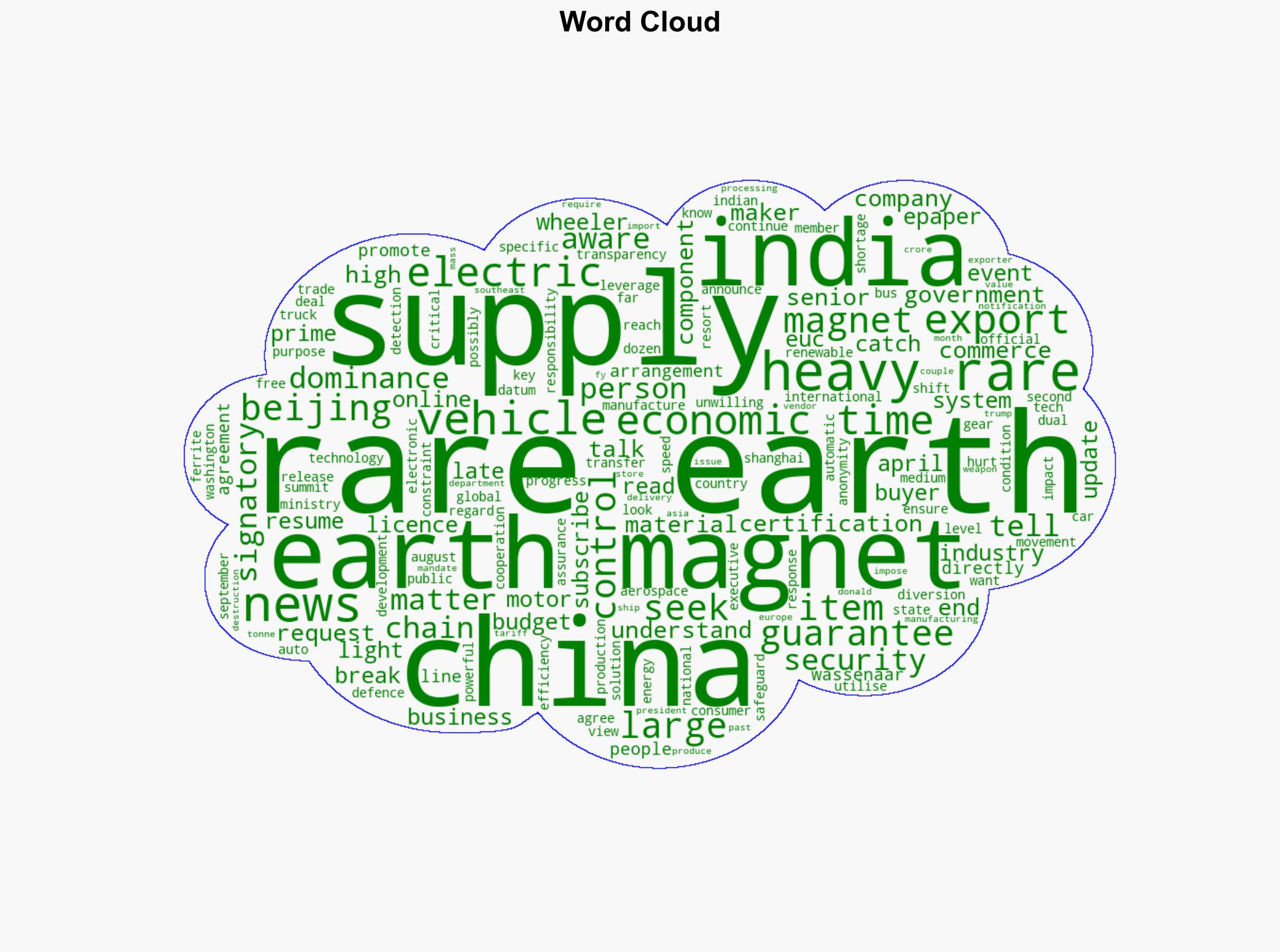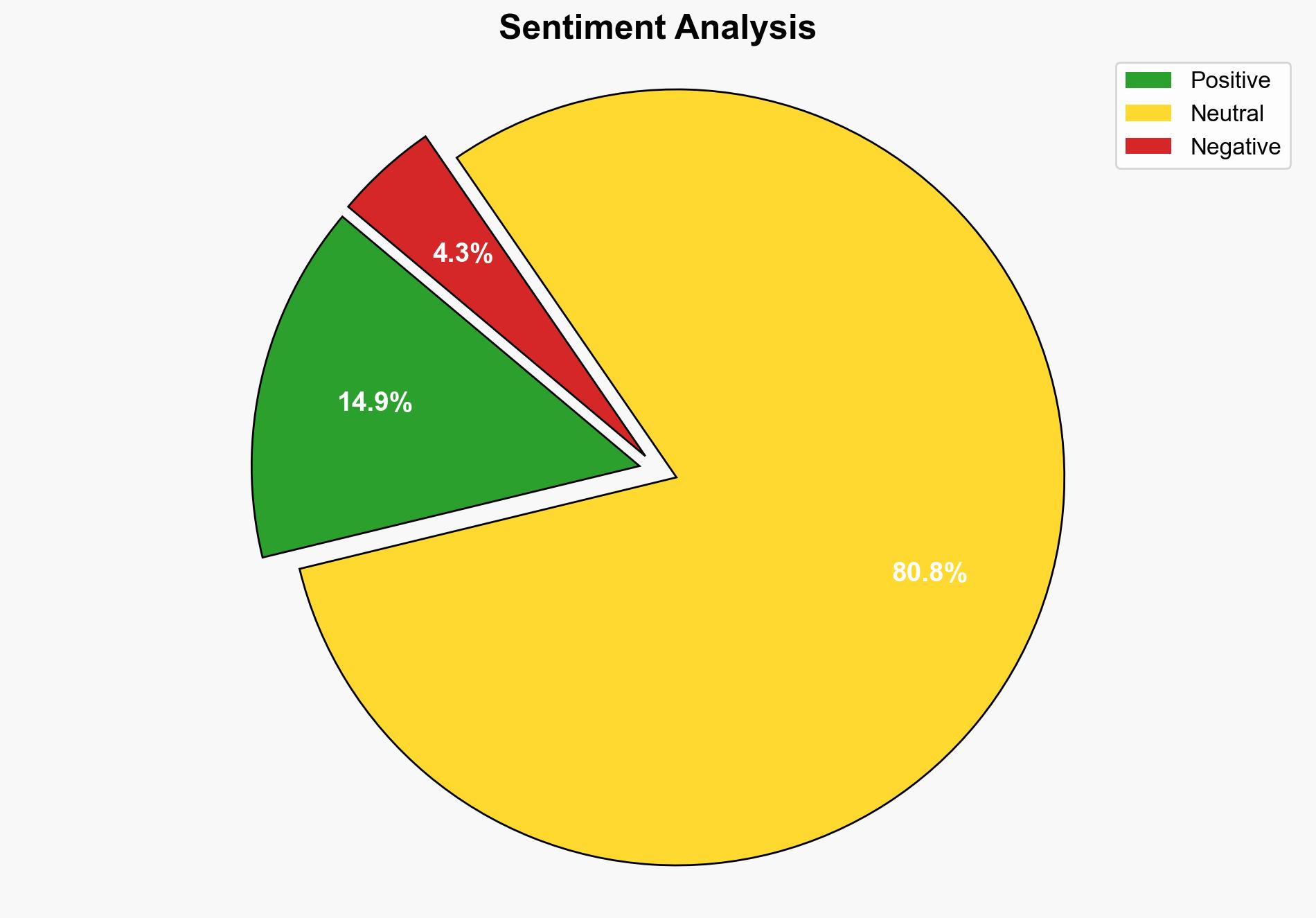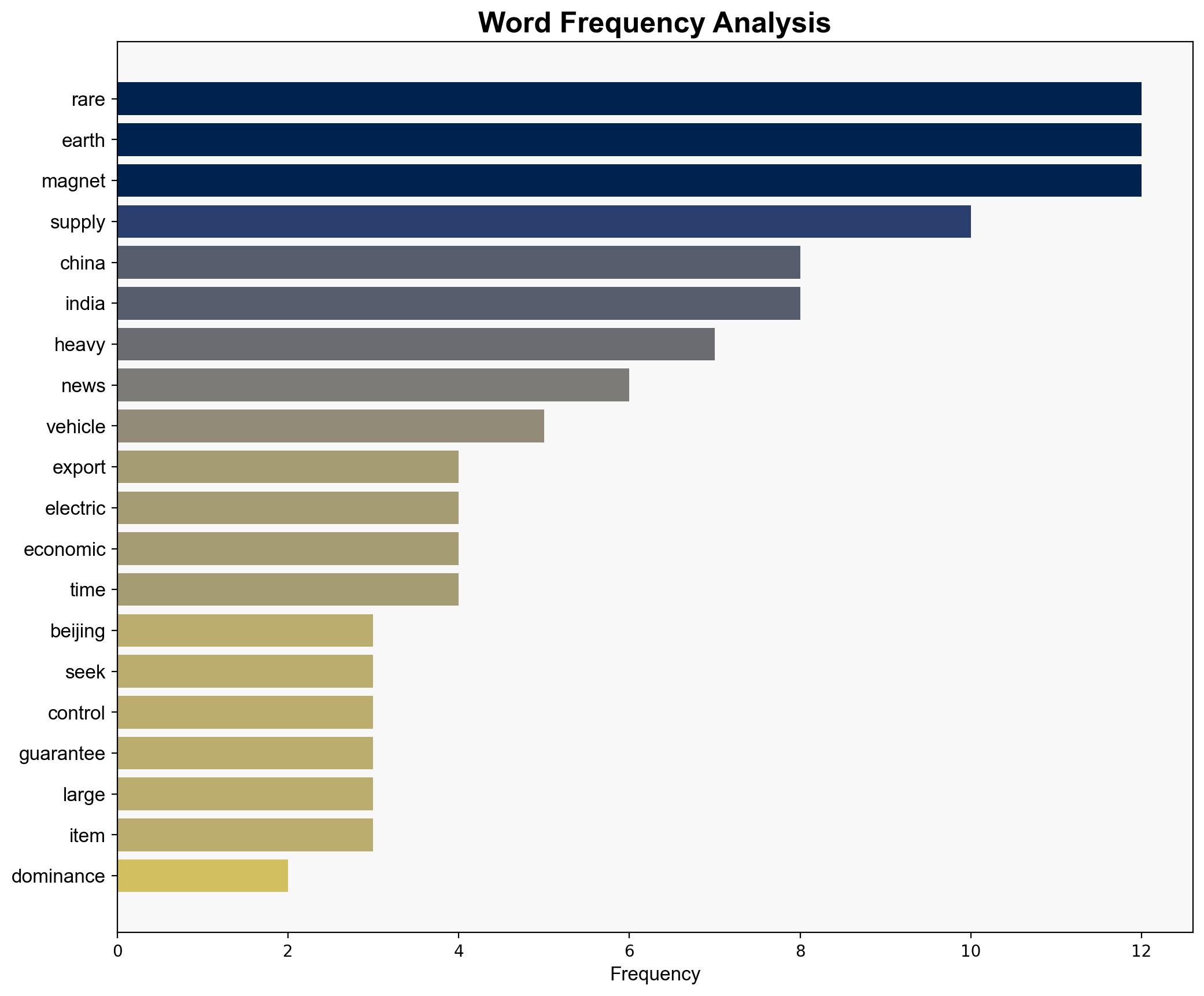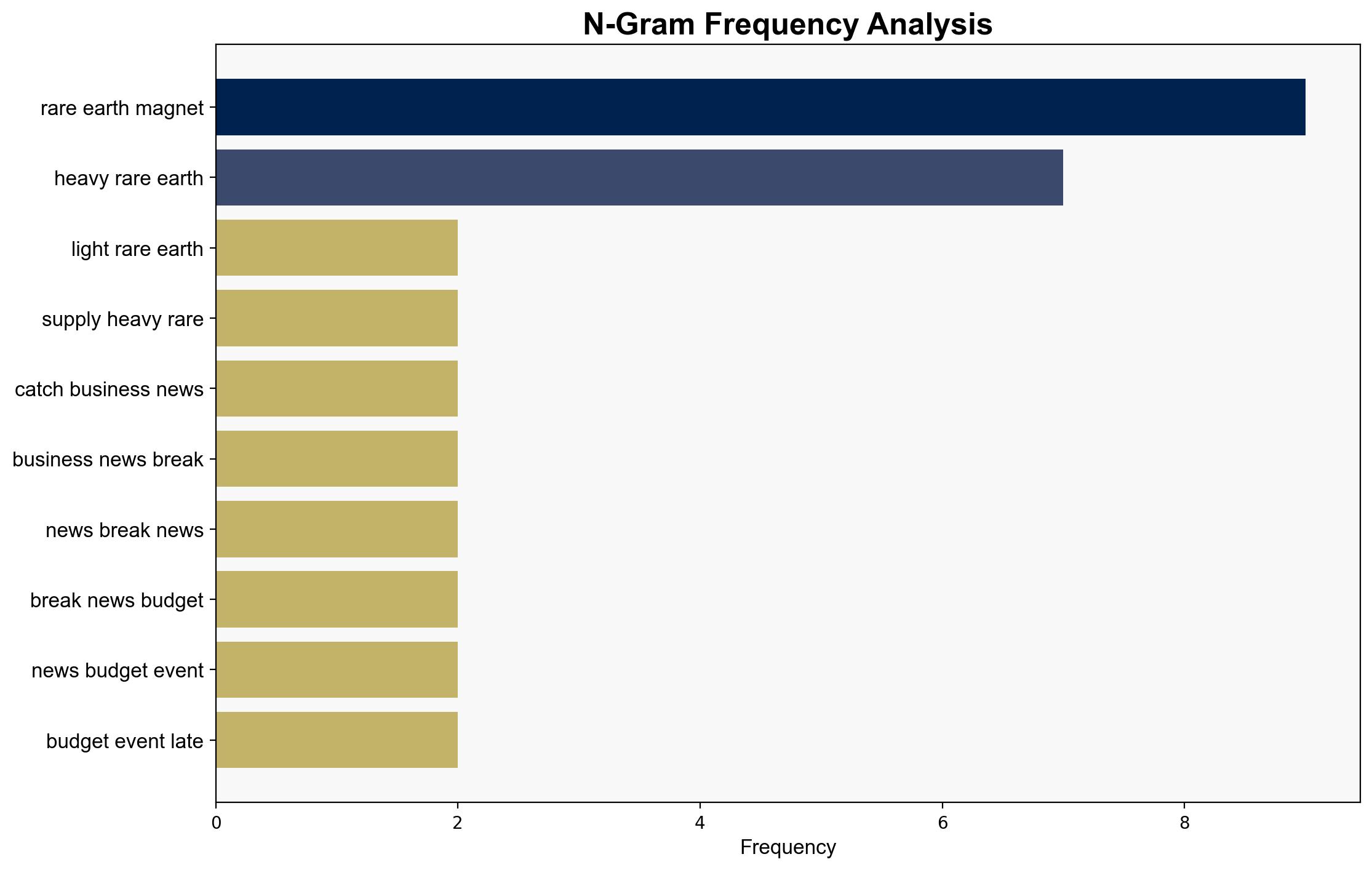China seeks India’s assurance on no heavy rare earths diversion to US – The Times of India
Published on: 2025-10-09
Intelligence Report: China seeks India’s assurance on no heavy rare earths diversion to US – The Times of India
1. BLUF (Bottom Line Up Front)
China is leveraging its dominance in the global rare earth supply chain to secure strategic assurances from India, potentially to counterbalance US influence. The most supported hypothesis is that China aims to prevent the diversion of rare earths to the US to maintain its geopolitical leverage. Confidence level: Moderate. Recommended action: India should carefully assess the strategic implications of compliance and explore alternative rare earth suppliers to mitigate dependency on China.
2. Competing Hypotheses
1. **China’s Assurance Demand as a Strategic Leverage**: China seeks assurances from India to prevent the diversion of heavy rare earths to the US, aiming to maintain its geopolitical leverage and control over the rare earth supply chain.
2. **China’s Assurance Demand as a Trade Negotiation Tactic**: China is using the assurance demand as a bargaining chip in broader trade negotiations with India, possibly to secure favorable terms in other areas of bilateral trade.
Using ACH 2.0, the first hypothesis is better supported due to China’s historical pattern of leveraging rare earths for geopolitical influence and the strategic importance of rare earths in high-tech industries.
3. Key Assumptions and Red Flags
– **Assumptions**: It is assumed that India’s compliance would significantly impact US access to rare earths. It is also assumed that China’s request is primarily driven by geopolitical motives rather than purely economic interests.
– **Red Flags**: Lack of transparency in the specific terms of the assurance request and India’s potential responses. The anonymity of sources raises questions about the reliability of the information.
– **Blind Spots**: The potential for India to develop alternative supply chains or domestic production capabilities is not addressed.
4. Implications and Strategic Risks
– **Economic Implications**: Compliance could limit India’s market options and increase dependency on China, affecting its high-tech and defense sectors.
– **Geopolitical Risks**: Aligning too closely with China could strain India’s relations with the US and other Western allies.
– **Escalation Scenarios**: Failure to comply could lead to supply disruptions, impacting India’s electric vehicle and renewable energy sectors.
5. Recommendations and Outlook
- India should diversify its rare earth supply sources to reduce dependency on China.
- Engage in diplomatic discussions with the US to explore joint strategies for rare earth procurement.
- Scenario Projections:
- Best Case: India secures alternative suppliers, reducing dependency on China without straining US relations.
- Worst Case: India complies, leading to increased geopolitical tension with the US and supply chain vulnerabilities.
- Most Likely: India negotiates a middle ground, maintaining strategic autonomy while managing supply risks.
6. Key Individuals and Entities
No specific individuals are mentioned by name in the source text. Key entities include the Chinese government, Indian government, and the US government.
7. Thematic Tags
national security threats, geopolitical strategy, trade negotiations, rare earth supply chain




